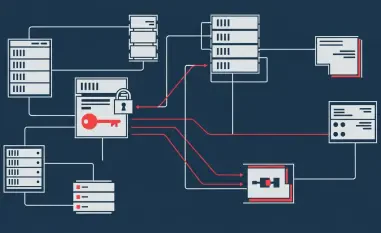In recent events, the cybersecurity landscape faced significant turbulence following an alarming breach on Network Rail’s public Wi-Fi services across major UK railway stations. The incident, spearheaded by a 36-year-old man named John Andreas Wik from Bromley, involved unauthorized access to Wi-Fi login pages, where offensive content inciting religious hatred was displayed. Stations affected included prominent locations such as London Euston, Manchester Piccadilly, and Birmingham New Street, disrupting Network Rail’s services on September 25, 2024.
Immediate Response and Investigations
Network Rail responded swiftly to mitigate the threat by suspending Wi-Fi services at 19 out of their 20 key stations, with London St Pancras being the only exception. This urgent action underscored the severity of the breach and highlighted the immediate need to secure public digital infrastructure. British Transport Police launched an in-depth investigation, eventually identifying Wik as the perpetrator behind the offensive content. Wik was found to have exploited a legitimate administrator account, making an unauthorized change to the Wi-Fi landing page, a move that raised serious concerns about internal security protocols.
Following the identification of Wik, who faces prosecution for publishing material to incite religious hatred, Network Rail and their cybersecurity partner, Telent, emphasized that no personal data of users was compromised during the incident. This announcement aimed to reassure users, stressing that the primary nature of the breach was limited to the dissemination of offensive content rather than an extensive data compromise. Nevertheless, the incident serves as a crucial reminder of the potential threats posed by unauthorized system access.
Consequences and Future Implications
The breach serves as a stark reminder of the growing vulnerabilities within public digital services and the potential repercussions on public trust. Cybersecurity experts have voiced concerns over the broader implications of such breaches, emphasizing the need for robust security protocols to safeguard public digital systems against similar intrusions. Network Rail and its partners have since enhanced their cybersecurity measures, reinforcing their commitment to protecting public services from evolving cyber threats.
The ramifications of this incident extend beyond the immediate legal proceedings involving Wik, who is set to appear at Westminster Magistrates’ Court. The wider public reaction to the breach reveals an underlying apprehension about the security of digital services at transport hubs. For many users, repeated breaches could erode confidence in the safety and reliability of public Wi-Fi services, ultimately impacting the overall trust in digital infrastructure within critical public sectors.
Strengthening Public Digital Infrastructure
Recently, the cybersecurity landscape faced significant challenges following a concerning breach on Network Rail’s public Wi-Fi services at major UK railway stations. This incident was orchestrated by John Andreas Wik, a 36-year-old resident of Bromley. Wik managed to gain unauthorized access to the Wi-Fi login pages, where he displayed offensive content inciting religious hatred. Prominent locations affected by this breach included London Euston, Manchester Piccadilly, and Birmingham New Street. This security breach on September 25, 2024, significantly disrupted Network Rail’s services, raising serious concerns about the robustness of the organization’s cybersecurity measures. The nature of this attack highlights the increasing vulnerability of public Wi-Fi systems and the need for enhanced security protocols to prevent similar incidents in the future. This event underscores the urgency for railway networks and other public service providers to invest in stronger cybersecurity defenses.













